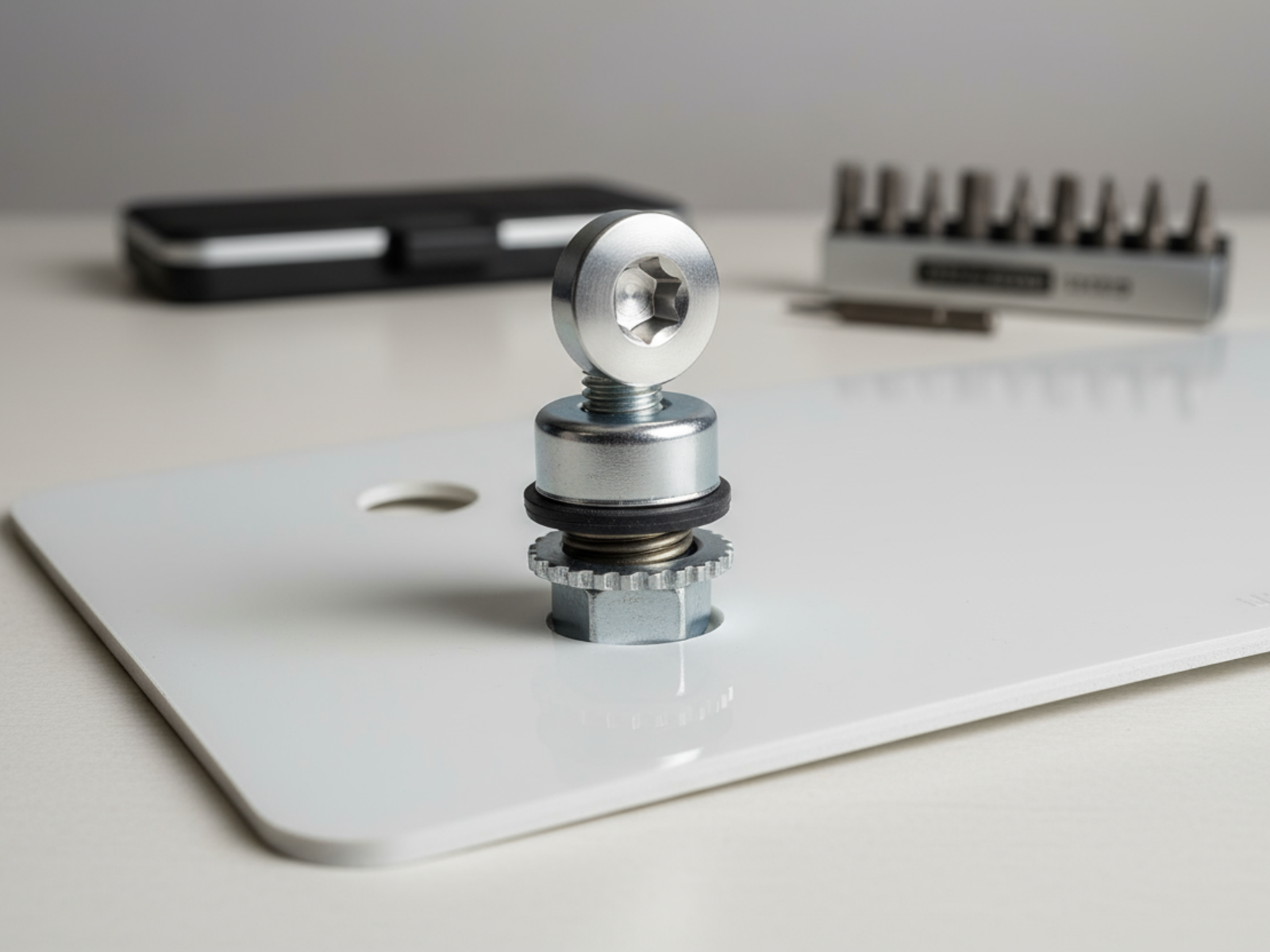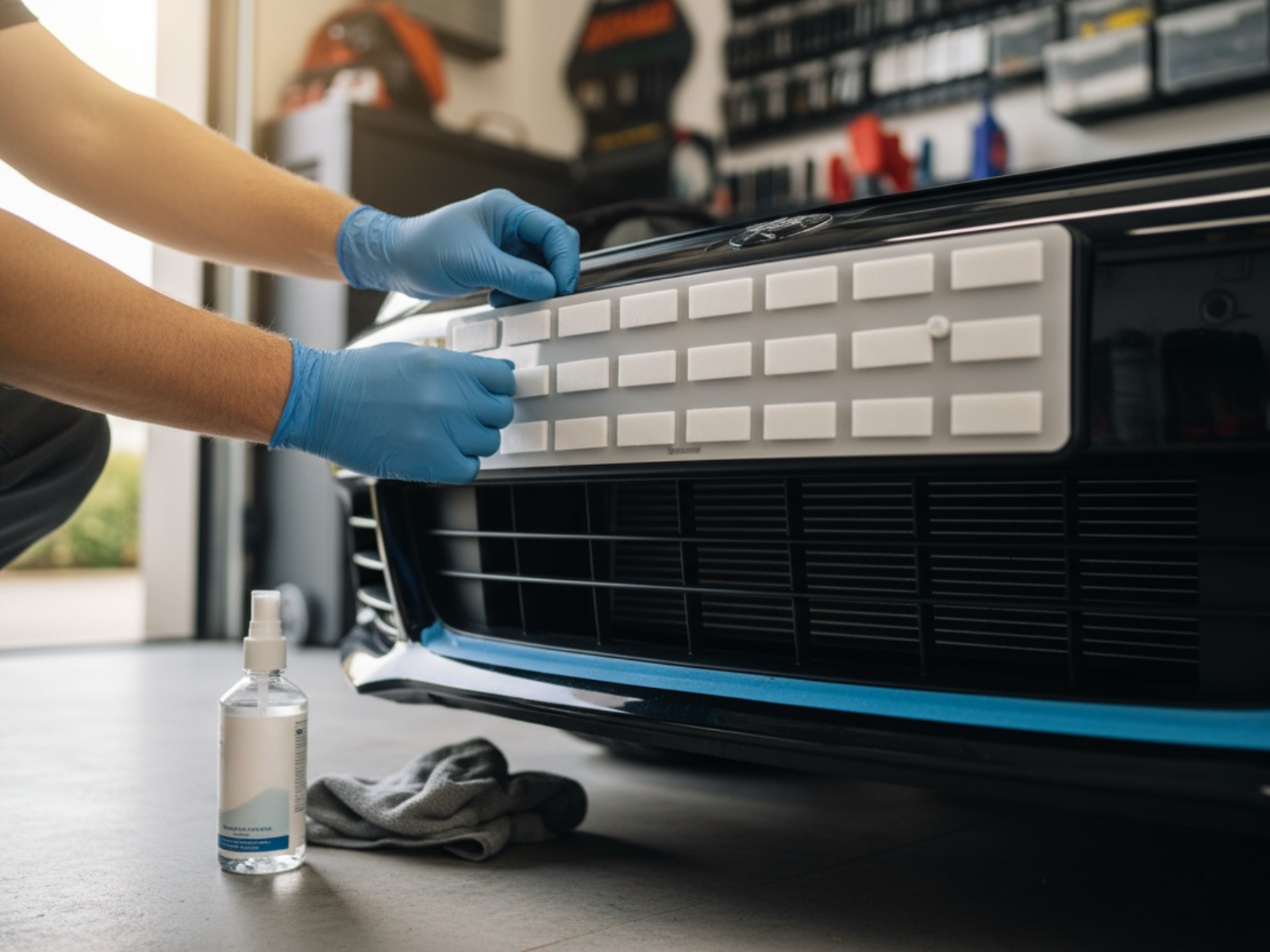Anyone who drives in Britain knows the weather is unpredictable; one week it’s pouring rain, the next it’s frost and road salt.
All of that takes a toll on vehicles, and as a matter of fact, the small details like number plate hardware tend to suffer the most. Standard screws and bolts might be cheap and quick to fit, yet they often corrode, loosen, or snap far sooner than you’d like.
That’s why choosing the right plate fixings makes such a difference. The best number plate fixings UK drivers can rely on are the ones built to resist rust, hold steady through constant vibration, and withstand everything the roads throw at them.
In this guide, we’ll walk through five proven options, comparing the pros, cons, and best uses for each.
Stainless Steel Screws
For most drivers, stainless steel screws are the go-to option for car number plate fixings. They’re widely available, straightforward to fit, and, in many respects, they tend to last far longer than standard mild steel screws. The real benefit is corrosion resistance. Road salt, heavy rain, and frost can eat away at cheaper materials, but stainless steel holds firm.
If you’re looking for the most weatherproof number plate screws, it’s worth considering marine-grade 316 stainless steel. This higher grade offers added protection against rust, which makes it particularly useful if you live by the coast or rack up lots of motorway miles in winter.
Installation is DIY-friendly: a simple screwdriver is usually all you need. That said, it’s still a good idea to pair screws with rubber washers or caps, as these add a layer of shock absorption and help protect paintwork around the plate area.

Anti-Theft Bolts
For anyone with a high-value car, a prized bike, or a van that carries tools, plate security matters just as much as weather protection. Standard screws can be removed with ease, yet anti-theft plate bolts make that far more difficult. They’re designed with unique heads that need a matching tool to remove, which means opportunistic thieves are far less likely to succeed.
These bolts aren’t just about security; they’re usually made from durable metals that stand up well to harsh UK weather. That makes them a practical choice for those who want both a secure number plate fitting and long-term resistance to rust.
A quick tip: when fitting anti-theft bolts, it helps to use lock washers underneath. These keep tension on the fixing, stopping the plate from loosening over time and adding another layer of stability against road vibration.
Heavy-Duty Adhesive Pads
Not every driver wants to drill holes into their vehicle, and that’s where adhesive number plate pads come in. They’re strong, double-sided pads that create a clean, flush look without the need for screws or bolts. For many car owners, they’re an easy and quick option for secure number plate fitting.
These pads work best when the plate sits against a smooth, flat surface, allowing maximum contact. In fact, when applied correctly in dry or mildly damp conditions, the bond can be surprisingly strong. They also help dampen vibration, which can reduce rattling noises on rough roads.
That said, adhesive pads have their limits. Extreme cold can make them brittle, while very hot conditions may weaken the grip. For that reason, they’re often best suited to everyday cars in moderate conditions, rather than vehicles exposed to constant heavy rain, salt spray, or temperature swings.

Weather-Resistant Plastic Nuts and Bolts
Plastic fittings might sound less durable at first, yet modern variants made from polycarbonate or ABS can be surprisingly tough. These plate fixings are lightweight, resistant to rust, and available in different colours, which makes them useful for those who want their fittings to blend neatly with the plate or bodywork.
For motorcycles, in particular, plastic fixings can be a smart choice. They keep the overall weight down and avoid the corrosion issues that metal screws sometimes face. They’re also popular for lightly used vehicles where extreme strength isn’t always necessary.
If you’re considering this option, it’s worth making sure the set you buy is UV-resistant. Standard plastics may fade or weaken under sunlight over time, while UV-stabilised versions hold their strength for much longer. In short, they can be a fairly practical type of number plate hardware if chosen carefully.
Rubber Washers for Shock Absorption
Rubber washers don’t secure a plate on their own, yet they make an excellent companion to other plate fixings. Acting as a cushion between the plate and the vehicle body, they absorb vibration from the road and stop moisture from seeping in behind the plate. That extra barrier often helps extend the life of both the plate and the fixing.
Another advantage is noise reduction. Plates that rattle against the bodywork can be annoying, and washers usually solve this problem straight away. For best results, look for EPDM or a similar grade of rubber, as these materials are far more resistant to weather extremes. Combined with stainless steel screws or anti-theft plate bolts, they give a balanced setup that’s durable, quiet, and protective.
Choosing the right plate fixings makes a noticeable difference in how well your plates hold up against rain, frost, and road salt. Stainless steel screws offer strength and corrosion resistance, anti-theft plate bolts add protection against tampering, and adhesive number plate pads give a clean finish without drilling. Plastic fixings and rubber washers also have their place, depending on your vehicle and conditions.
At the end of the day, the best number plate fixings UK drivers can choose are the ones that balance durability, security, and appearance. Explore Demon Plates’ full range of secure number plate builder options, or contact us for expert advice.
